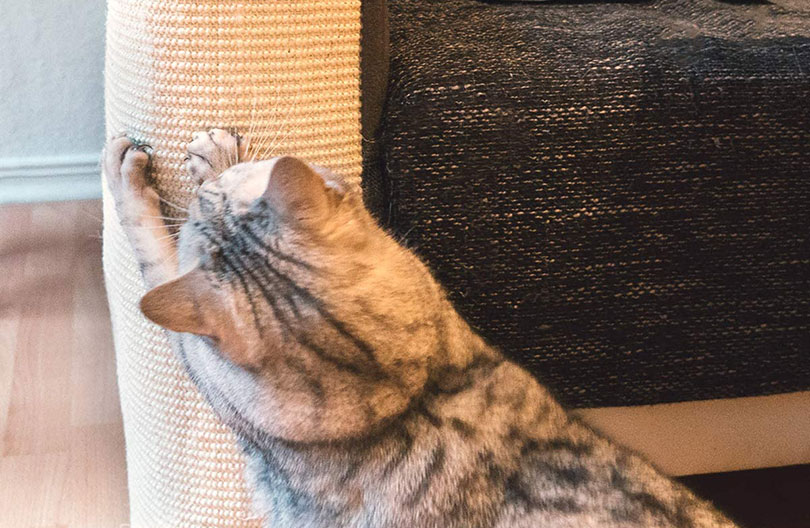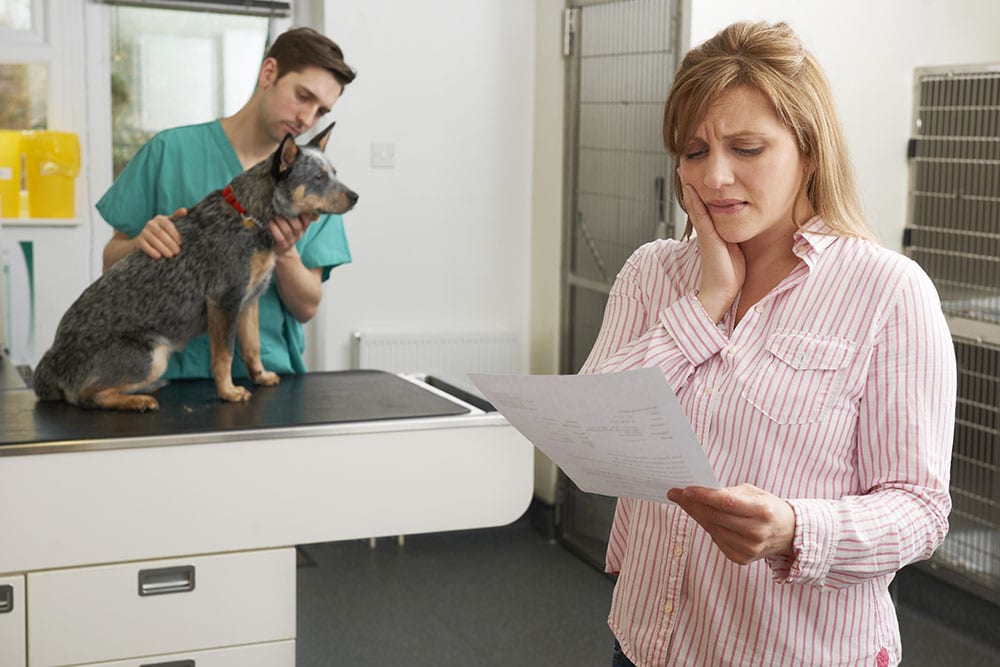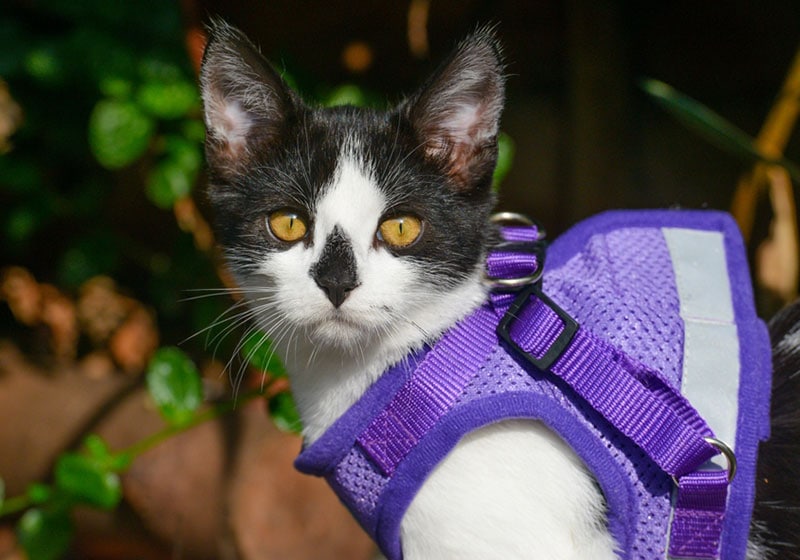How to Care for a Tripod Cat: Tips & Health Advice
Updated on
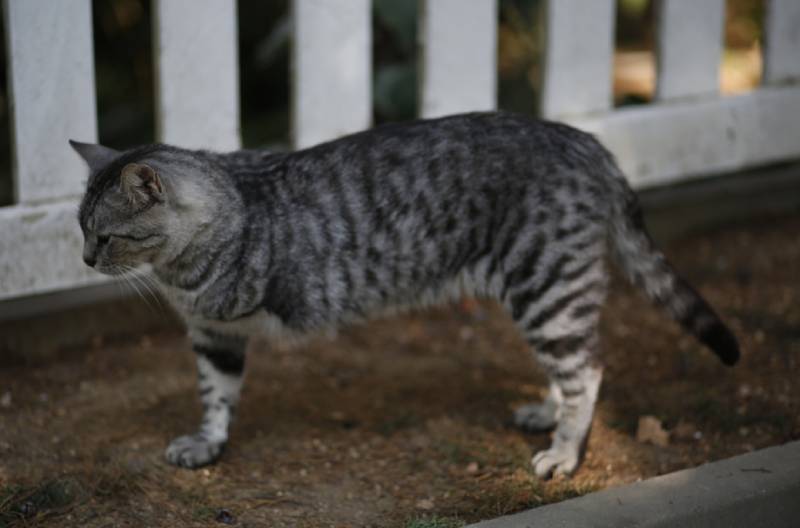
Click to Skip Ahead
Can you imagine living without a limb? Lots of pets (and people) do it every day. Limb amputation surgery is a common surgery in the veterinary field. Although emotionally draining, it’s usually harder on the owner than the pet.
In this post, we’re going over the basics of caring for a tripod kitty. You’ll learn what to expect after surgery and some tips for modifying your home, and you’ll be introduced to some motivational cats who are beating the odds.
Bringing Your Cat Home After Surgery
The hardest part about an amputation is dealing with the aftercare. Aftercare for an amputation involves keeping your cat comfortable while the wound heals. This is a relatively simple task, and your veterinarian will provide discharge instructions to help you through the process.
Keeping Your Cat Comfortable
The hardest part of an amputation is feeling like our cat is in pain. But pain meds, activity restriction, and a good night’s sleep will help speed up the process.
Veterinarians offer pain medications during and after the procedure, and these medicines can last for hours or even days until it’s time to shift to oral medicines (which will be given at home). Without proper pain management, your cat won’t want to eat or sleep and may try to lick the wound, so it’s imperative to follow the instructions on your cat’s discharge papers. And if you have any questions, call your veterinarian.
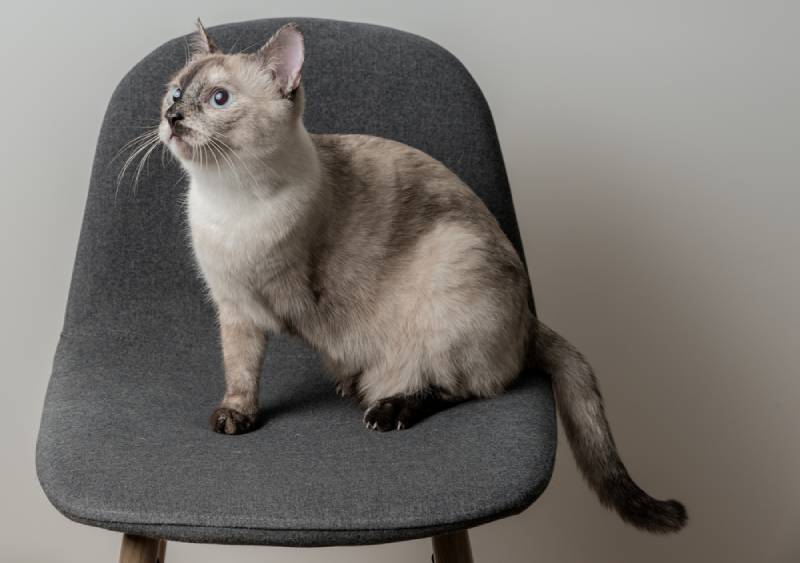
Helping the Wound Heal
In addition to oral meds, your kitty will need antibiotics and regular bandage changes to keep the area free of infection. Don’t worry, only your veterinarian will change the bandage. This gives them better insight into how the wound is healing and if adjustments are necessary.
Even with pain meds, your kitty will try to rip off the bandage and habitually lick the wound. This can prevent the wound from healing properly, so they’ll have to wear the cone of shame, unfortunately. Luckily, it’s only temporary.
Adapting Your Home
Cats can live normal lives with three legs, but you’ll need to make adjustments to help them out. All a three-legged cat needs is additional support for basic activities.
- No-slip cat socks: These are tiny little socks with traction on the bottom to prevent your cat from slipping on slick surfaces.
- Ramps and steps: Ramps and steps are the best options as these provide easy access to areas your tripod cat has trouble reaching.
- Wheelchairs: Most cats won’t take kindly to wheelchairs and won’t need them, but some may if they need extra support.
- Life jackets: If your kitty likes to swim, pet life jackets can provide the extra support and safety your cat needs.
- Litter boxes: Tripod cats need litter boxes with easy access in the front and potentially some tall walls to provide support. A ramp could also be helpful. You may have to try a few to see what your cat favors.
- Rugs: A simple change like adding more rugs in the house can be a game changer in preventing falls.
Don’t be discouraged if your cat doesn’t take to these lifestyle changes immediately. It’s a big change and will require patience from everyone, including your cat.
Keeping Your Tripod Cat Healthy
Exercise
Tripod cats require exercise just like other cats. They may become tired more easily and can’t run as fast, but they’re certainly capable of regular movement. Playtime, cat trees, toys, and even monitored outdoor times can go a long way in keeping your tripod healthy.
The exception to the rule may be seriously disabled cats or senior cats. In this case, it’s best to work with a veterinarian on the right diet and exercise plan.
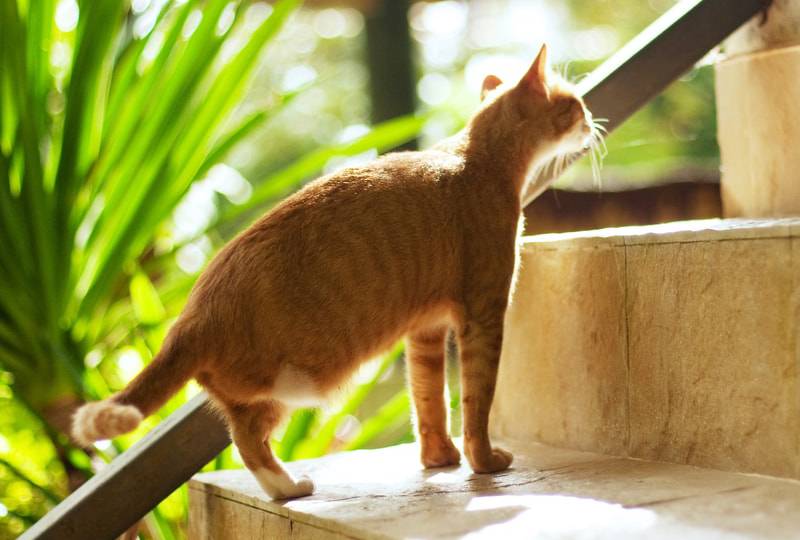
Joint Health
Tripod cats have an increased risk of arthritis and joint problems, so it’s important to stay vigilant and proactive. Joint supplements like glucosamine, chondroitin, or MSM can go a long way in preventing future joint problems.
Weight Management
Weight management and joint health go hand in hand. The more weight a cat carries, the more pressure and inflammation on their joints, and that’s the last thing we want for our tripod kitties. A balanced diet and exercise can help keep your kitty lean and muscular, without putting too much pressure on the joints.
Famous Wobbly Cats Who Are Doing Just Fine
Need some inspiration? You’re not alone. Caring for a three-legged cat can be emotionally challenging, but take a look at these cats who are living life to the fullest:
1. Mylo
Mylo, a 6-year-old Domestic Shorthair, is missing his front right leg. Even so, he gets around just fine. His Instagram is full of photos and videos of him being a normal cat, just with one less leg. According to his mom, Mylo is “75% legs, 100% handsome.”
2. Phineas and Tyrion
Although not a tripod, Phin the cat understands the wobbly life. Phin was born with cerebellar hypoplasia, meaning his cerebellum never fully developed. This causes him to wobble all over the place.
You can imagine he struggles a little with daily activities like dismounting furniture and eating, but he makes it work. Phin is a very happy cat despite his disability!
3. Jamal the Tripod Cat
https://www.instagram.com/p/CKgw7CRJPzU/?utm_source=ig_web_copy_link
Conclusion
Caring for a tripod kitty is emotionally challenging. Obviously, cats do better with four legs, but sometimes that’s not the cards cats are dealt, and amputation is necessary. But cats are made of nine lives for a reason: they’re resilient! They don’t let one leg surgery stop them from living their best lives.
If they can beat the odds, who’s to say we can’t do the same?
Featured Image Credit: Ferda Demir, Shutterstock

